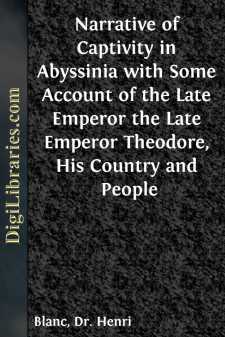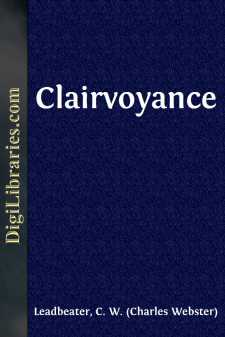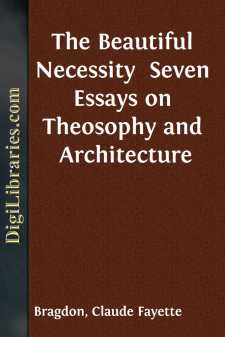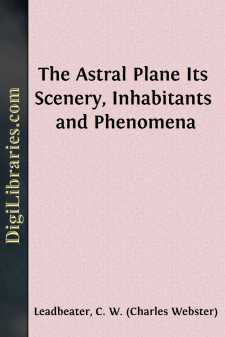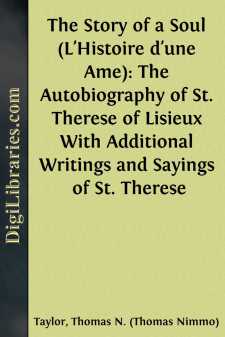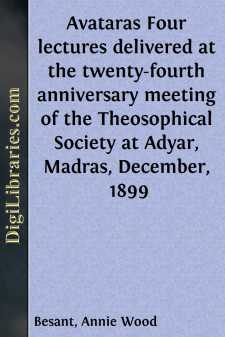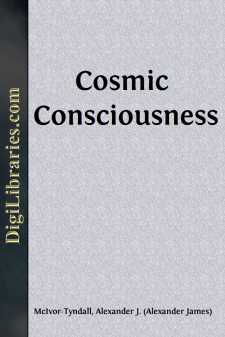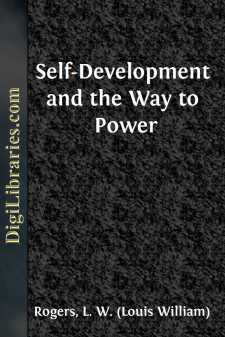Categories
- Antiques & Collectibles 13
- Architecture 36
- Art 48
- Bibles 22
- Biography & Autobiography 813
- Body, Mind & Spirit 142
- Business & Economics 28
- Children's Books 15
- Children's Fiction 12
- Computers 4
- Cooking 94
- Crafts & Hobbies 4
- Drama 346
- Education 46
- Family & Relationships 57
- Fiction 11828
- Games 19
- Gardening 17
- Health & Fitness 34
- History 1377
- House & Home 1
- Humor 147
- Juvenile Fiction 1873
- Juvenile Nonfiction 202
- Language Arts & Disciplines 88
- Law 16
- Literary Collections 686
- Literary Criticism 179
- Mathematics 13
- Medical 41
- Music 40
- Nature 179
- Non-Classifiable 1768
- Performing Arts 7
- Periodicals 1453
- Philosophy 64
- Photography 2
- Poetry 896
- Political Science 203
- Psychology 42
- Reference 154
- Religion 513
- Science 126
- Self-Help 84
- Social Science 81
- Sports & Recreation 34
- Study Aids 3
- Technology & Engineering 59
- Transportation 23
- Travel 463
- True Crime 29
Sort by:
by:
Dr. Henri Blanc
CHAPTER I. The Emperor Theodore—His Rise and Conquests—His Army and Administration—Causes of his Fall—His Personal Appearance and Character—His Household and Private Life. Lij Kassa, better known as the Emperor Theodore, was born in Kouara about the year 1818. His father was a noble of Abyssinia, and his uncle, the celebrated Dejatch Comfou, had for many years governed the provinces of...
more...
CHAPTER I. Clairvoyance means literally nothing more than "clear-seeing," and it is a word which has been sorely misused, and even degraded so far as to be employed to describe the trickery of a mountebank in a variety show. Even in its more restricted sense it covers a wide range of phenomena, differing so greatly in character that it is not easy to give a definition of the word which shall be...
more...
I THE ART OF ARCHITECTURE One of the advantages of a thorough assimilation of what may be called the theosophic idea is that it can be applied with advantage to every department of knowledge and of human activity: like the key to a cryptogram it renders clear and simple that which before seemed intricate and obscure. Let us apply this key to the subject of art, and to the art of architecture in...
more...
INTRODUCTION Reference to the astral plane, or Kâmaloka as it is called in Sanskrit, has frequently been made by Theosophical writers, and a good deal of information on the subject of this realm of nature is to be found scattered here and there in our books; but there is not, so far as I am aware, any single volume to which one can turn for a complete summary of the facts at present known to us about...
more...
PREFACE As we become acquainted with the histories of those in whom, in long succession, God has been pleased to show forth examples of holiness of life, it seems as if every phase of human existence had in the history of the Church received its consecration as a power to bring men nearer to their Maker. But there is no limit to the types of sanctity which the Creator is pleased to unfold before His...
more...
First Lecture. Brothers:—Every time that we come here together to study the fundamental truths of all religions, I cannot but feel how vast is the subject, how small the expounder, how mighty the horizon that opens before our thoughts, how narrow the words which strive to sketch it for your eyes. Year after year we meet, time after time we strive to fathom some of those great mysteries of life, of...
more...
I Once upon a time there was a beautiful palace where the king’s children lived as happily as they alone can live. They never wanted anything and they never knew that there could be others who were not as happy as they. Sometimes, it is true, they would hear a story which would make them almost think that perhaps there was a world beyond, which they did not know, outside the palace of the king and...
more...
CHAPTER I THE NEW BIRTH: WHAT IT IS: INSTANCES DESCRIBED The chief difference between the religions and the philosophies of the Orient and those of the Occident, lies in the fact that the Oriental systems, methods, and practices, emphasize the assumption that the goal of these efforts, is attainable at any moment, as it were. That is, Oriental religion—speaking in the broad sense—teaches that the...
more...
SELF DEVELOPMENT AND THE WAY TO POWER It is the natural right of every human being to be happy—to escape all the miseries of life. Happiness is the normal condition, as natural as the landscapes and the seasons. It is unnatural to suffer and it is only because of our ignorance that we do suffer. Happiness is the product of wisdom. To attain perfect wisdom, to comprehend fully the purpose of life, to...
more...
CHAPTER I A FORBIDDEN COUNTRY Tibet was a forbidden land. That is why I went there. This strange country, cold and barren, lies on a high tableland in the heart of Asia. The average height of this desolate tableland—some 15,000 feet above sea-level—is higher than the highest mountains of Europe. People are right when they call it the "roof of the world." Nothing, or next to nothing, grows...
more...


